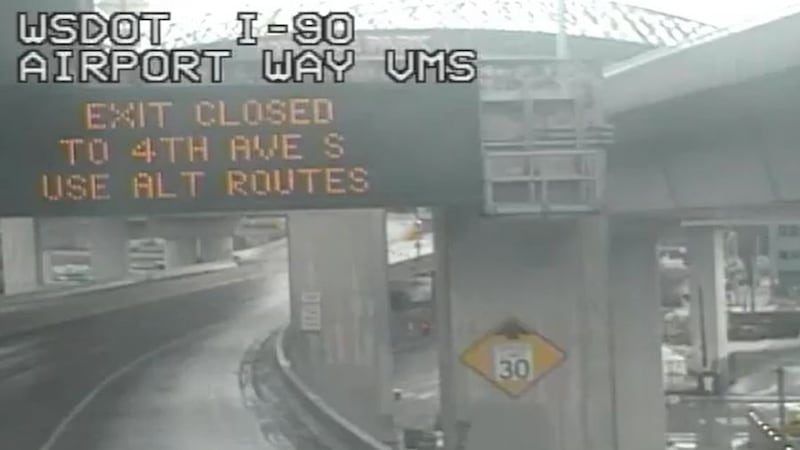Airline operations for long-haul flights out of Seattle-Tacoma International Airport (SEA) returned to normal on Tuesday as the Olympic Pipeline partially reopened.
Airlines hubbing out of SEA, Alaska Airlines and Delta Airlines, tell KIRO 7 that planned fuel stops for long-haul flights have been canceled, but they are still supporting truck shipments of fuel to ensure there’s enough.
On Tuesday, BP, the operator of the Olympic Pipeline, announced the leak was first detected on Nov. 11, days before the first hint of any trouble was made public.
PREVIOUS: Leak in Olympic Pipeline: What we know so far
Nov. 16 was when airlines first raised concerns about fuel supply—the first announcement that there was a leak in the pipeline. Neighbors living near the blueberry field that’s being dug up to fix the pipe say they first heard on Nov. 17.
“The public has a right to know. And I think operators have a responsibility to fulfill that right to the people who live along that pipeline,” said Bill Caram, the executive director of the Pipeline Safety Trust.
The Pipeline Safety Trust was created in the aftermath of the Whatcom Creek Explosion on the Olympic Pipeline. Caram’s organization worked with the American Petroleum Institute to create standards of Community Engagement. The standards, which focus on two-way communications and proactive communication, were adopted by API in March 2024.
“I haven’t seen BP on the list of operators that are in the process of implementing that best practice and industry-adopted standard,” Caram said.
ALSO READ: BP and Olympic Pipeline fined nearly $4 million for gasoline spill near Conway
KIRO 7 reached out to BP, asking why the company didn’t notify the public or community in the immediate vicinity on Nov. 11. We also asked if the company has adopted the API Community Engagement standards. BP did not reply for several hours before our stated deadline.
“When you have the sense of the public really having to pull information out of the operator who’s unwilling to give it, it builds distrust.” Caram continued.
There’s another inconsistency in BP’s story. The company asserted the leak was found part of its routine maintenance.
Sen. Maria Cantwell said, however, it was actually found by a blueberry farm worker who noticed the sheen on the ground. Caram says operators must conduct routine inspections of pipelines every two weeks.
“Sadly, it’s really common for a member of the public to be the one to find a pipeline leak. Very, very common.”
BP also did not reply to KIRO 7’s question about how the leak was found.
The Pipeline Safety Trust says for more than 20 years following the Whatcom Creek Explosion, just one leak or issue was found on the pipeline. Since 2023, four leaks and issues have been announced, including one in September of this year.
Caram says that was only publicized after a rise in gas prices. He says his organization will review federal and state regulator data of the pipeline’s assessments and repairs to see if proper care is being taken for the Olympic Pipeline.
“We’re going through that to kind of assess the type of job they’ve been doing and see if there’s reason for the public to be concerned.”
©2025 Cox Media Group





